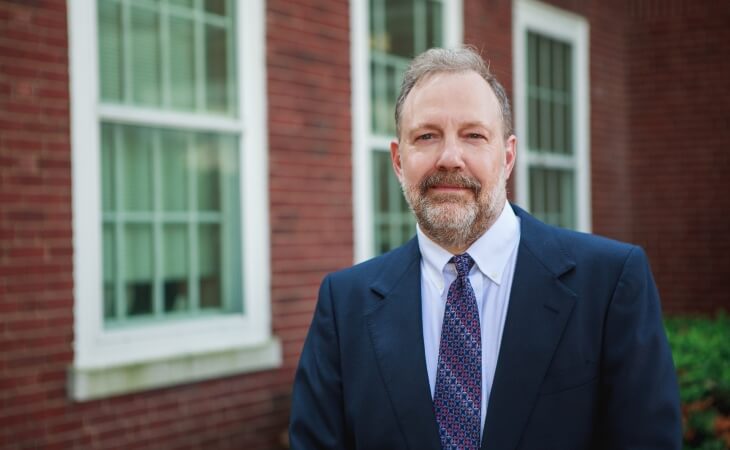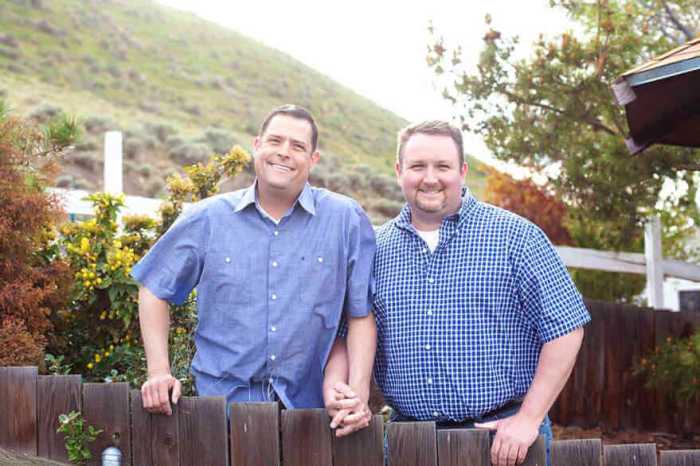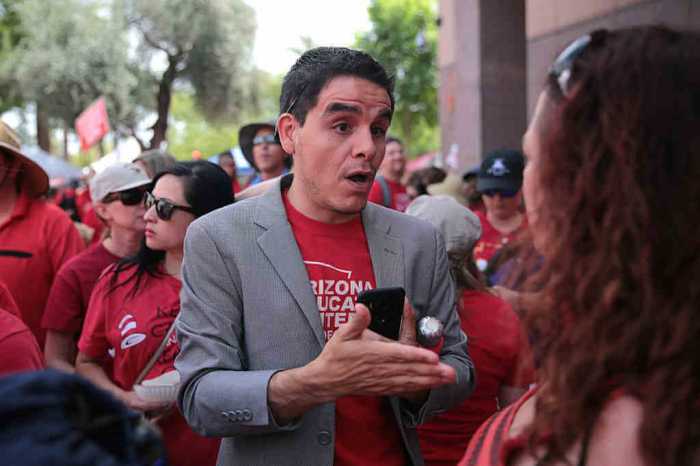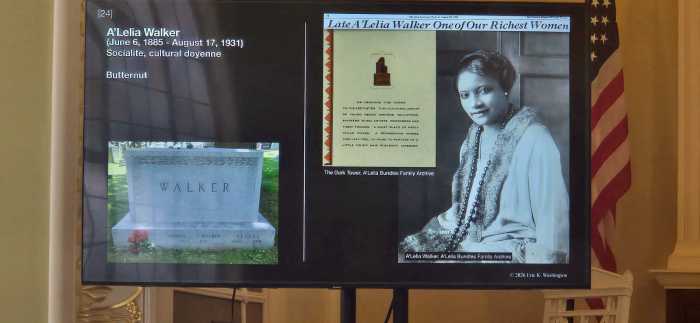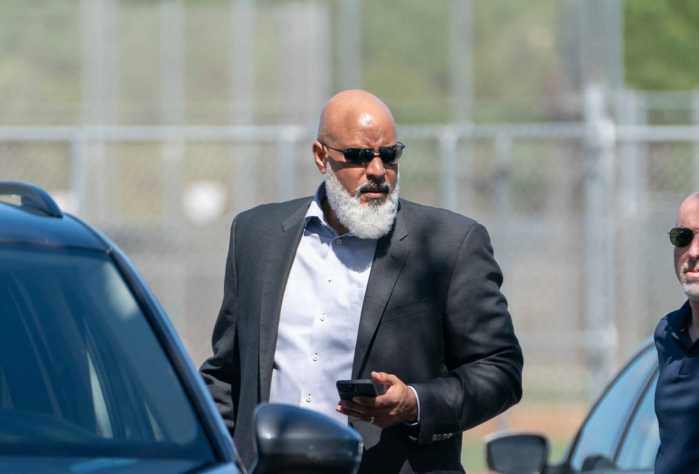Nicholas Meriwether, a philosophy professor at Shawnee State University in Portsmouth, Ohio, was very concerned in 2016 when the university announced that its ban on gender identity discrimination would require professors to respect students’ gender identity by using appropriate pronouns to refer to them. Meriwether, a devout Christian who rejects the idea that people can have a different gender identity than the one assigned to them at birth, protested to his department chair, who ridiculed his religious beliefs and told him to comply with the rule. Now a federal appeals court panel has ruled that Meriwether could have a First Amendment right to insist on misgendering transgender students based on his religious beliefs.
According to his federal court complaint, Meriwether says that the department chair exhibited hostility toward him and his beliefs during their meeting, stating that “adherents to the Christian religion are primarily motivated out of fear”; “the Christian doctrines regarding hell are harmful and should not be taught”; “anyone who believes hell exists should not be allowed to teach these doctrines”; “faculty members who adhere to a certain religion should be banned from teaching courses regarding that religion”; “the presence of religion in higher education is counterproductive” because “the purpose of higher education is to liberate students”; and “religion oppresses students.”
Meriwether, who had taught at Shawnee for 35 years, confronted the issue up close in January 2018 when he returned from a semester on sabbatical leave and discovered, undoubtedly to his chagrin, that there was a transgender woman in his class, who is identified in the litigation as “Doe.” Meriwether, believing Doe to be male, addressed Doe as “sir” in response to a comment Doe made in class discussion. After the class, Doe approached Meriwether and advised him that Doe was a woman and should be addressed accordingly. Doe threatened to file a complaint against Meriwether if he did not address her as female.
This led ultimately to the university putting a disciplinary note and warning in Meriwether’s file when he failed to abide by instructions to consistently address Doe as a woman or to just to use her last name when calling on or referring to her. He tried to restrain himself from addressing Doe incorrectly, but slipped up on occasion, quickly correcting himself. He told one administrator that he would be willing to comply with the rule by referring to Doe consistently as female if he could put an explanatory statement in his course syllabus setting forth his religious views, but he was told that would itself violate the anti-discrimination rule.
Doe filed at least two complaints with university administrators against Meriwether, leading to findings that he had created a hostile environment for Doe, which he tried to refute by claiming that Doe had participated actively and well in class discussion and earned a high grade in his course. Meriwether appealed these rulings and claimed that when his union representative tried to explain Meriwether’s religious freedom argument to the university president, that official just laughed and refused to listen.
US District Judge Susan J. Dlott referred the University’s motion to dismiss Meriwether’s First Amendment lawsuit to a magistrate judge, Karen L. Litkovitz, who issued a Report and Recommendation in 2019 concluding that the case should be dismissed because Meriwether’s failure to comply with the university’s rule did not involve constitutionally protected speech. In January 2020, Judge Dlott issued a brief opinion agreeing with Litkovitz’s recommendation and dismissing the case. Meriwether, represented by Alliance Defending Freedom, a staunchly anti-LGBTQ religious litigation group, appealed to the Cincinnati-based U.S. Court of Appeals for the Sixth Circuit, which reversed Judge Dlott’s ruling on March 26, reviving the lawsuit and sending it back to the district court for trial.
Judge Dlott’s decision adopting Judge Litkovitz’s recommendation to dismiss the case was based heavily on Garcetti v. Ceballos, a 2006 Supreme Court ruling that held, by a vote of 5-4, that when government employees speak or write as part of their job, their speech is “government speech” that is not protected by the First Amendment. As Justice Anthony Kennedy interpreted the Court’s free speech precedents, an individual is protected by the First Amendment’s freedom of speech when they are speaking as a citizen on a matter of public concern, but not when they are speaking as a government official. The case concerned a prosecuting attorney who claimed to have suffered unconstitutional retaliation for an internal memo he wrote and some testimony he gave in a criminal court hearing that met with disapproval from his supervisors. The Supreme Court held that neither his memo nor his testimony enjoyed First Amendment protection because he was speaking as part of his job as a government official.
In a dissent, Justice David Souter raised the specter of censorship of public university professors who are employed to engage in scholarship and teaching and who would theoretically be deprived of academic freedom under such a rule. Justice Kennedy responded in his opinion by acknowledging the academic freedom concern and observing that the Court was not deciding that issue in the Garcetti case. Lower federal courts have been divided about the impact of Garcetti in cases involving educators seeking First Amendment protection for their speech.
In her opinion, Judge Litkovitz found that Professor Meriwether’s use of inappropriate terminology to refer to Doe was not protected speech, relying in part upon the Garcetti reasoning, and Judge Dlott accepted her conclusion. But the Sixth Circuit panel (which included two judges appointed by President Donald J. Trump) decisively rejected that view.
Writing for the unanimous panel, Circuit Judge Amul Roger Thapar seized upon Justice Souter’s dissent and Justice Kennedy’s acknowledgement that academic freedom concerns could create an exception to the Garcetti rule and insisted that Professor Meriwether’s claim that the University violated his First Amendment rights by disciplining him for his use of words in dealing with Doe should not have been dismissed.
“Under controlling Supreme Court and Sixth Circuit precedent, the First Amendment protects the academic speech of university professors,” wrote Judge Thapar. “Since Meriwether has plausibly alleged that Shawnee State violated his First Amendment rights by compelling his speech or silence and casting a pall of orthodoxy over the classroom, his free-speech claim may proceed.” The court insisted that the words Meriwether used reflected his religiously-based beliefs about gender, and as spoken in the classroom were part of his teaching and were thus communicating his point of view about a hotly debated and controversial subject of public concern. As such, they enjoy First Amendment protection under the free speech provision.
Furthermore, pointing out the hostility with which Meriwether’s department chair and the University president had responded to his religiously-based arguments, the court relied on the Supreme Court’s Masterpiece Cakeshop ruling to find that his right to free exercise of religion also came into play in this case. If speech on an issue of public concern enjoys First Amendment protection, then the University’s disciplinary action of placing a warning letter in Meriwether’s personnel file and threatening him with more severe sanctions for future violations would be subject to “strict scrutiny,” which means the University and those officials named as individual defendants would have the burden to show that there is a compelling justification for their actions and that the “accommodations” that Meriwether had suggested would defeat the University’s attempt to achieve its compelling goal.
In this case, the university’s justification lies in Title IX of the Education Amendments of 1972, which provides that schools receiving federal funding may not deprive any individual of equal educational opportunity because of sex. In 2016, the Obama Administration informed the educational community that it interpreted that language to ban gender identity discrimination, and published a guidance document that instructed, among other things, that transgender students have a right to be treated consistent with their gender identity, including appropriate use of language in speaking to and about them.
The university argued that the Sixth Circuit’s decision in the Harris Funeral Homes case, which later became part of the Supreme Court’s 2020 Bostock ruling, had confirmed its compelling interest in preventing discrimination against transgender students. In that case, the Sixth Circuit, and ultimately the Supreme Court, held that the ban on sex discrimination in employment under Title VII of the Civil Rights Act of 1964 applied to an employer’s discharge of a transgender employee when she announced her transition.
Judge Thapar rejected the argument. “Harris does not resolve this case,” he insisted. “There, a panel of our court held that an employer violates Title VII when it takes an adverse employment action based on an employee’s transgender status. The panel did not hold — and indeed, consistent with the First Amendment, could not have held — that the government always has a compelling interest in regulating employees’ speech on matters of public concern … [It] would allow universities to discipline professors, students, and staff any time their speech might cause offense. That is not the law. Purportedly neutral non-discrimination policies cannot be used to transform institutions of higher learning into ‘enclaves of totalitarianism.’”
Furthermore, he wrote, “a requirement that an employer not fire an employee for expressing a transgender identity is a far cry from what we have here — a requirement that a professor affirmatively change his speech to recognize a person’s transgender identity.”
“At this stage of the litigation,” wrote Thapar, “there is no suggestion that Meriwether’s speech inhibited his duties in the classroom, hampered the operation of the school, or denied Doe any educational benefits. Without such a showing, the school’s actions ‘mandate orthodoxy, not anti-discrimination,’ and ignore the fact that ‘[t]olerance is a two-way street.’” He also rejected the argument that how Meriwether addressed Doe in the classroom deprived her of educational opportunity, pointing out Meriwether’s claim that Doe was an active participant in class discussion and earned a “high grade” in his course.
Thapar supported this view by noting that university president Jeffrey A. Bauer, in confirming the disciplinary decision, had conceded that Meriwether did not create a hostile environment for Doe, instead resting his decision on the assertion that Meriwether discriminated against Doe by addressing cisgender students consistent with their gender identity but not address Doe consistent with her gender identity. Thus, Judge Thapar concluded, disciplining Meriwether was not necessary to effectuate Title IX’s policy of protecting educational opportunity.
The court’s opinion lacks any kind of discussion or understanding concerning the concept of “misgendering” and the harm that inflicts on transgender individuals. In the court’s view, the victim here is Professor Meriwether, not Doe. This reflects the same cavalier attitude towards misgendering recently displayed in a Fifth Circuit decision denying a request by a transgender prisoner that she be referred to consistent with her gender identity in court papers — which was also treated dismissively by a Trump-appointed appeals court judge. It calls to mind a recent ruling by the 11th Circuit striking down on First Amendment free speech grounds an attempt by Florida municipalities to protect LGBTQ youth from the practice of conversion therapy, yet another opinion by a Trump-appointed judge. The Trump Administration may technically be at an end, but it lives on in his appointment of a third of the active federal appeals court judges.
The only point on which the Sixth Circuit panel affirmed Judge Dlott’s ruling was in her conclusion rejecting Meriwether’s argument that the University’s rule was too vague to meet Due Process standards. The Sixth Circuit panel found that Professor Meriwether was clearly advised of the rule and was accorded due process, while finding fault with the lack of neutrality towards religion exhibited by his department chair and President Bauer. The court ordered that Judge Dlott’s ruling dismissing the lawsuit be vacated, and that the case sent back to the district court for proceedings consistent with the 6th Circuit’s opinion.
To sign up for the Gay City News email newsletter, visit gaycitynews.com/newsletter.

